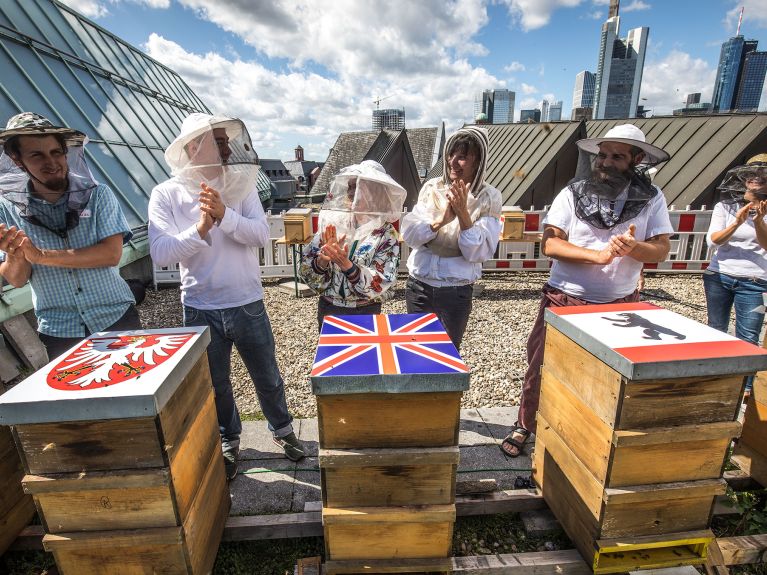First international bee’s race
Museum für Moderne Kunst Frankfurt hosted a race for bees. There’s a serious reason for this art action.

Germany. The “finger” artists group has for ten years now been running a bee project on the roof of Museum für Moderne Kunst. It has since settled 650,000 bees there who are all busy collecting pollen for the Frankfurt museum honey. On the roof of the 28-story-high Jumeirah Hotel there are now also hives, home to more than 40,000 bees. The honey produced by these bees originates in Frankfurt’s parks, gardens and tree-lined avenues.
Dieses YouTube-Video kann in einem neuen Tab abgespielt werden
YouTube öffnenThird party content
We use YouTube to embed content that may collect data about your activity. Please review the details and accept the service to see this content.
Open consent formWho won the bee race?
For the race for bees elaborately staged to mark the project’s 10th anniversary, beekeepers from Frankfurt, Berlin, Hungary, Poland and Wales each entered ten bees. In mid-August, the bees all took off from the roof of the Jumeirah Hotels to head for the museum roof, about 600 metres away. The bees from outside had been given a week to acclimatize and find their bearings. Before the start, all the bees had been fed honey to make certain they would fly straight to their respective hives. And they were kept apart from one another by differently coloured dots. A bee from Frankfurt won. It crossed the finishing line a mere one minute and ten seconds after the start.
What’s the overall context?
Estimates suggest there are more than 20,000 types of bee world-wide, with there being about 560 different species in Germany alone. Around 70 percent of the world’s plants depend on bees for pollination. Which is why the bee is one of the most important creatures when it comes to maintaining the human food chain. Biologists have sounded the alarm as the number of bee colonies is steadily decreasing, and not just in Germany. One of the bee’s greatest naturally born enemies is the varroa mite. Moreover, pesticides also harm bees. And the bees’ natural habitat is being further eroded by construction activities in rural areas and the industrialization of agriculture.
Video: Martin Orth
